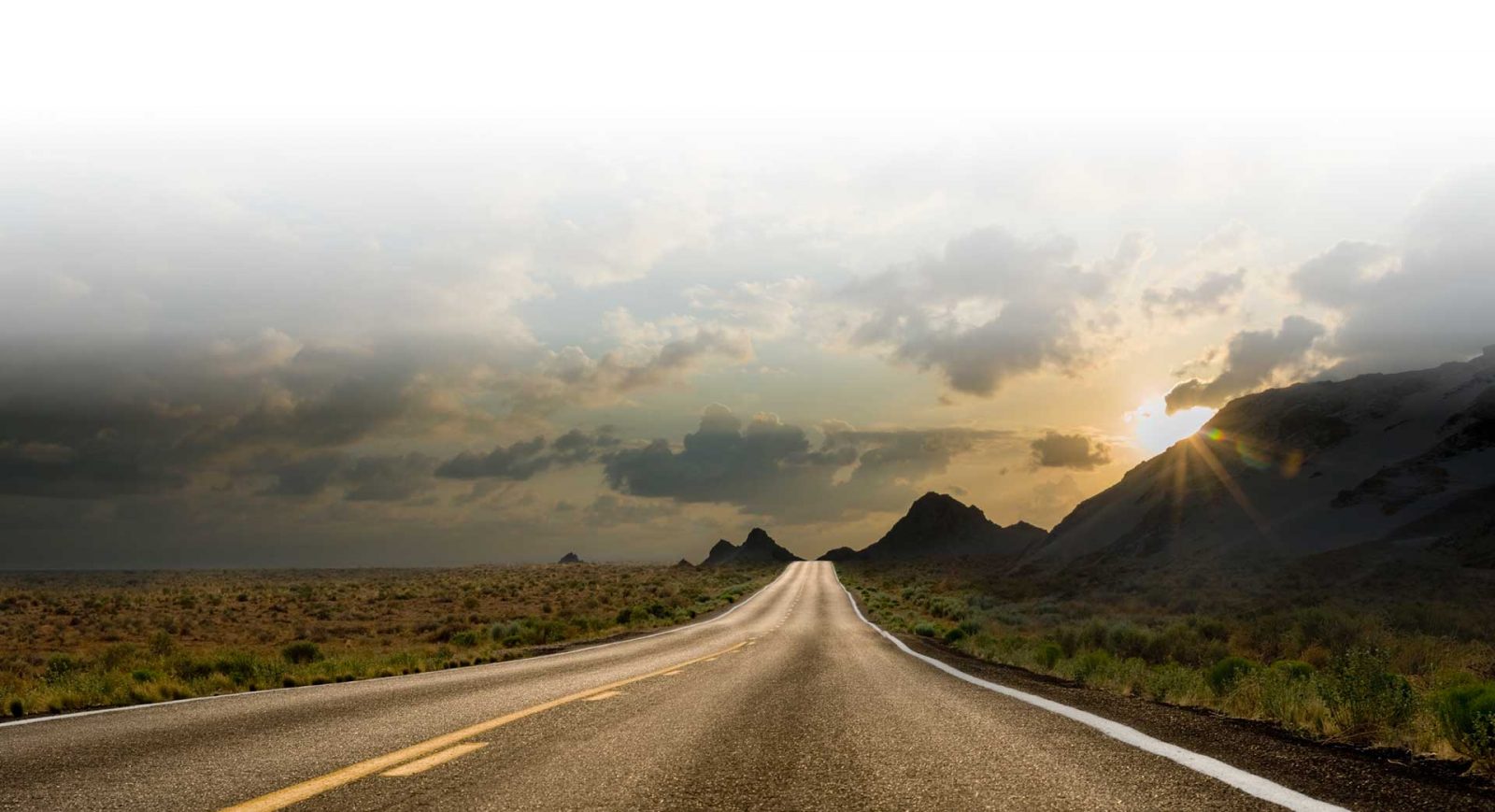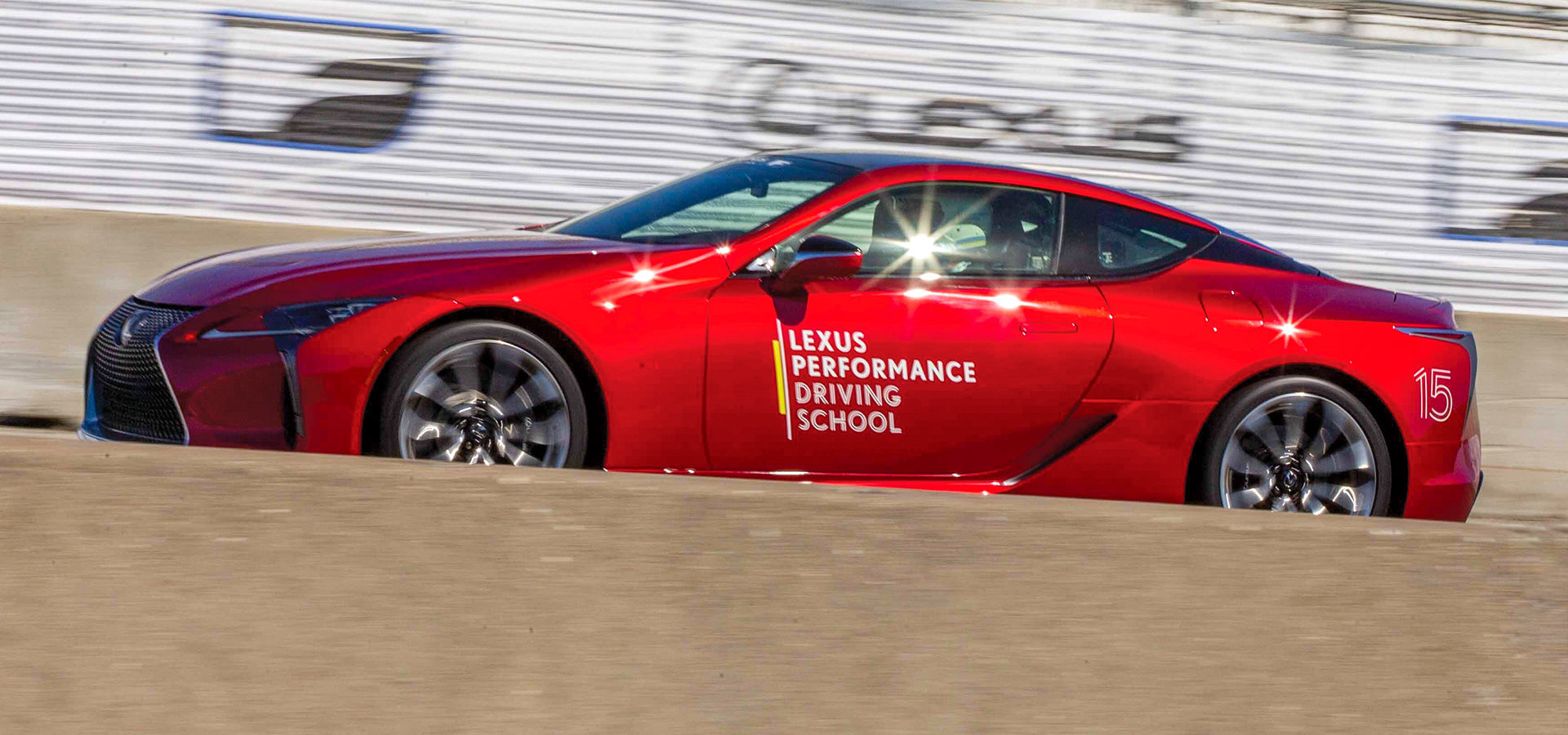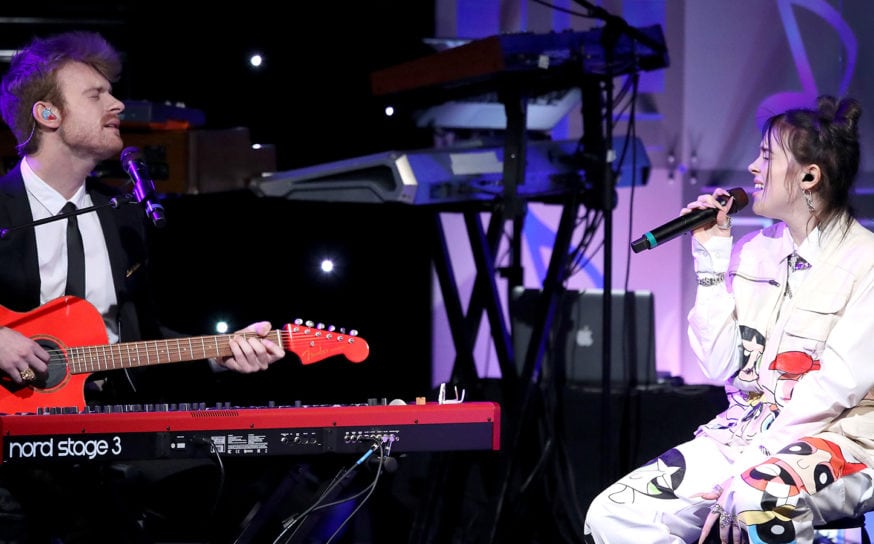Heading to a Monterey Racetrack to Test Out High Performance Vehicles
During what many car enthusiasts call the glory days of Formula One motor racing, I worked alongside the sport’s British mastermind, Bernie Ecclestone, for numerous years while teams globetrotted across time zones and oceans vying for coveted championship points. The late legendary Brazilian race car driver Ayrton Senna and other notable competitors of that era […]
-
CategoryLife Outside
-
Written byDiane E. Barber
-
Photographed byThe Apex Agency
During what many car enthusiasts call the glory days of Formula One motor racing, I worked alongside the sport’s British mastermind, Bernie Ecclestone, for numerous years while teams globetrotted across time zones and oceans vying for coveted championship points. The late legendary Brazilian race car driver Ayrton Senna and other notable competitors of that era piloted cars through the streets of Downtown Long Beach, at Caesars Palace in Las Vegas, on Notre Dame Island in Montreal and at numerous other venues around the globe.
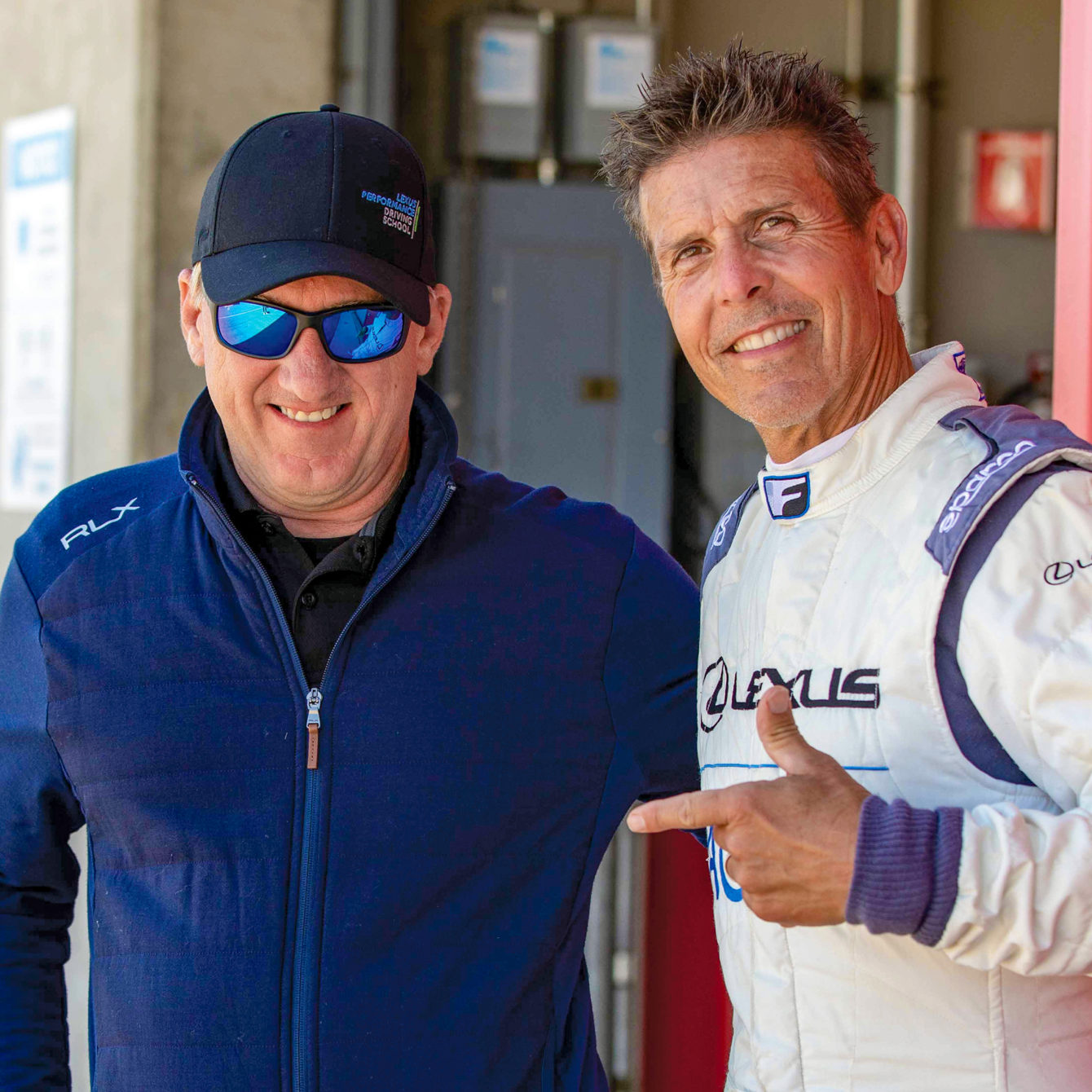
Curiosity about the rush they felt toyed with me when I was behind the scenes focused on event production. Regrettably, I shrugged off invitations to attend amateur racing schools to glean a mortal’s hint at what the illustrious pros experienced.
A few decades have passed since the roar of engines and the glamorous sport were the backdrop of my career, though nostalgia has often tapped me on the shoulder for a look in the rearview mirror at some of the best days of my life. I forged many relationships through the sport that have sustained time, including with Penske Automotive Group. That business connection led to a recent invitation to participate in the Lexus Performance Driving School. With a Cheshire cat-like grin, I seized the opportunity and enrolled my husband, Alex, and me in a full-day program as a surprise anniversary gift.
The 2.2-mile race track at the iconic Laguna Seca Raceway in Monterey was the destination for our weekend road trip from L.A. for the adventure. For more than 60 years, many great drivers from IndyCar, the International Motor Sports Association and other racing series have crossed the finish line under checkered flags victoriously, some of which I watched trackside when not working for Formula One. I looked forward to returning.
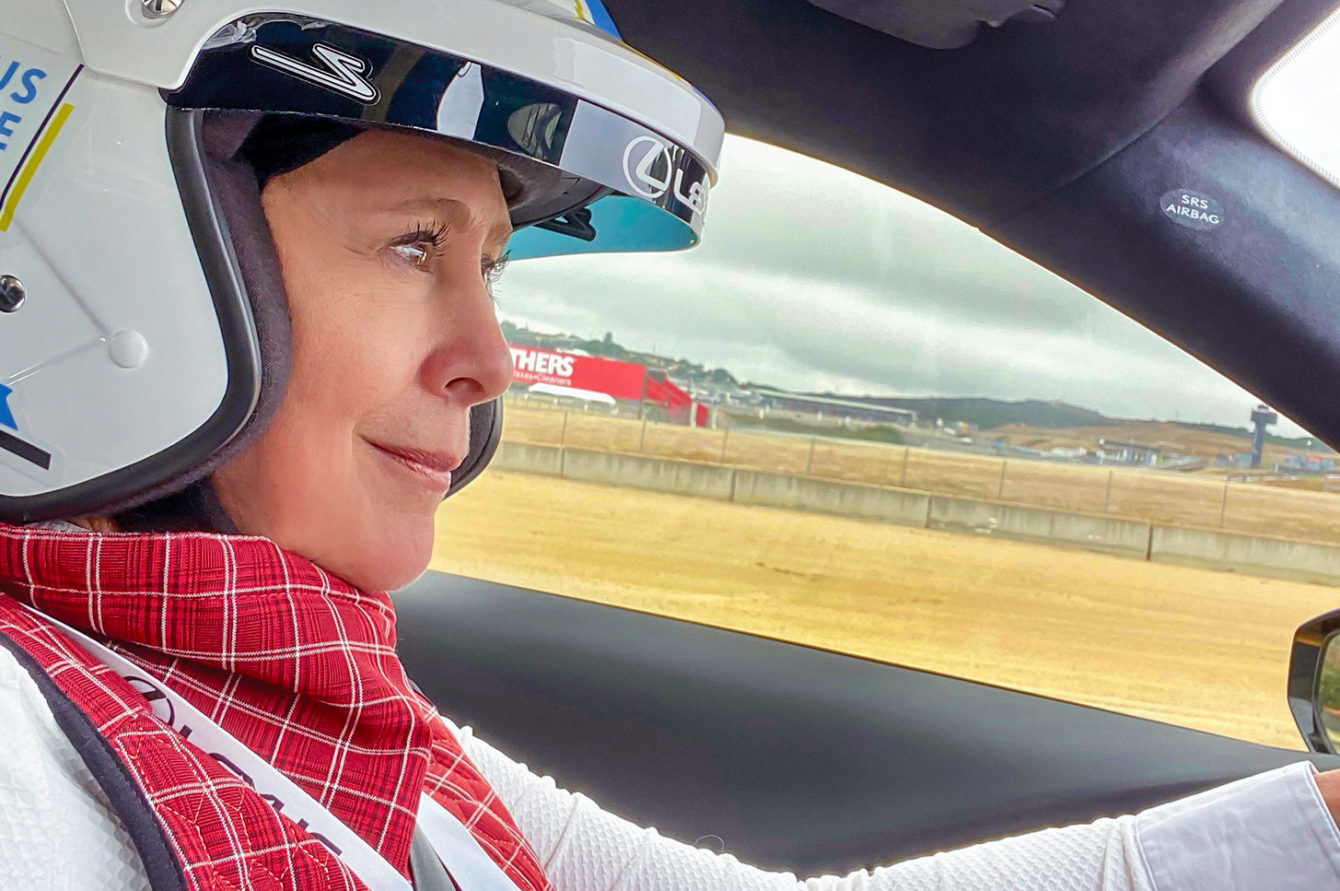
After overnighting in Pacific Grove, Alex and I arrived at the track at 7:30 a.m. with our enthusiasm in high gear. We were assigned to the Carbon Team (one of four groups) and were whisked off to a hospitality suite for breakfast and a welcome presentation. Scott Pruett, a native Californian, vintner and one of the winningest American professional race car drivers of this modern era, passionately shared insight from his racing career and set the stage for the day.
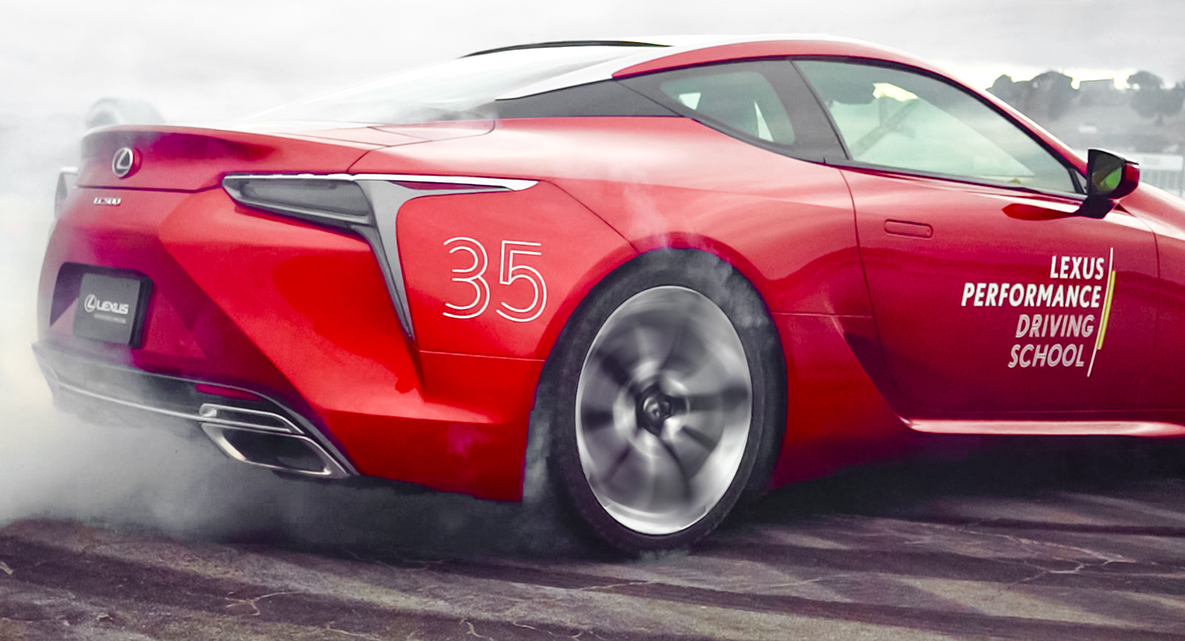
“During the 50 years that I competed, I always considered myself a student of the sport,” he said. “Most people know how to drive, and it is common that they want to stay in a comfort zone. To build confidence and improve you have to take uncomfortable steps. My goal is to help the drivers feel like the car is an extension of them and push them to the edge of that comfort zone.”
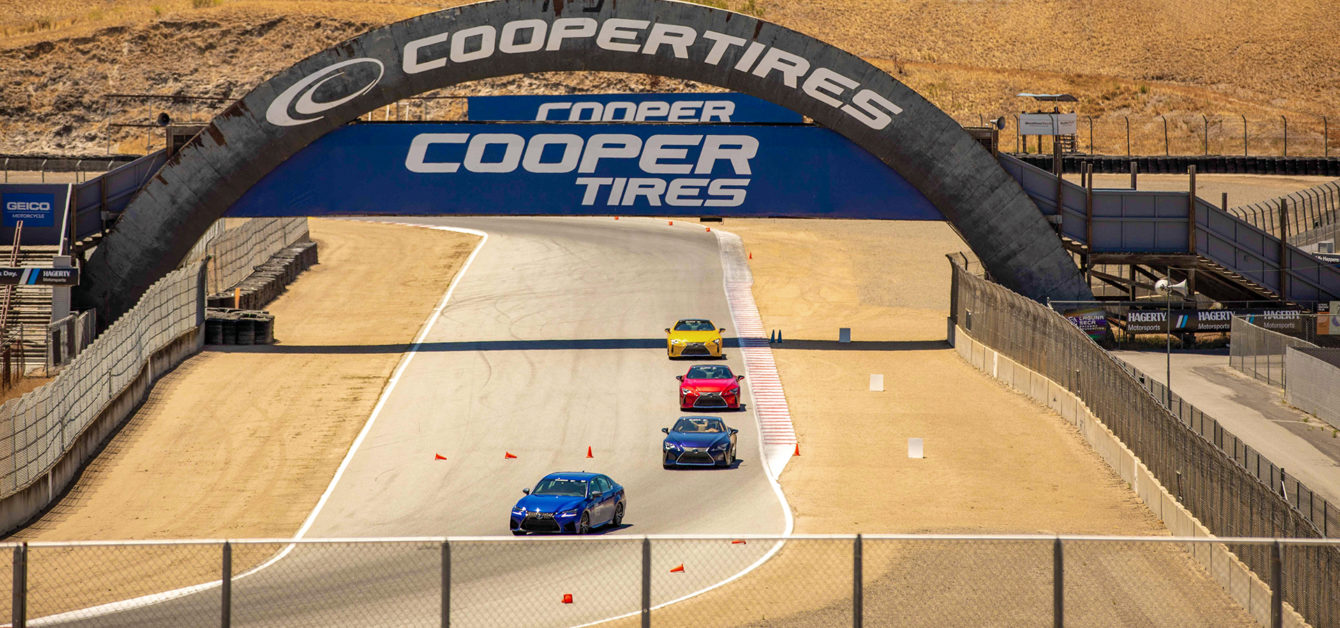
The participants were escorted to the track by team leaders with gusto as they set out to synchronize a well-oiled production that maximized everyone’s time in the cars. Instruction by professional drivers alongside Pruett was done with Lexus performance vehicles (IS 350 F Sport, LC Coupe and RC F) that showcased distinctly different driving experiences: autocross, drifting and racetrack.
According to Todd Lewis, the Lexus marketing strategist who was instrumental in starting the program in 2016, “The purpose of developing the school was to position Lexus as not only a luxury brand but also a performance brand. We want people to experience our cars—not just talk about them. You don’t have to be a race car driver to experience speed in a safe environment. Participants leave changed as better drivers with more confidence and improved control.”
A brief classroom-style presentation that highlighted driving theory preceded each session before we buckled our seat belts in the driver’s seats of awaiting cars. Autocross was first on our pedal-to-the-metal agenda—an individually timed competition averaging 40 to 50 mph through a traffic-coned course adjacent to the racetrack. The goal was to reach the finish line with the fastest time possible while balancing the vehicle through the transitions by alternating the throttle and braking.
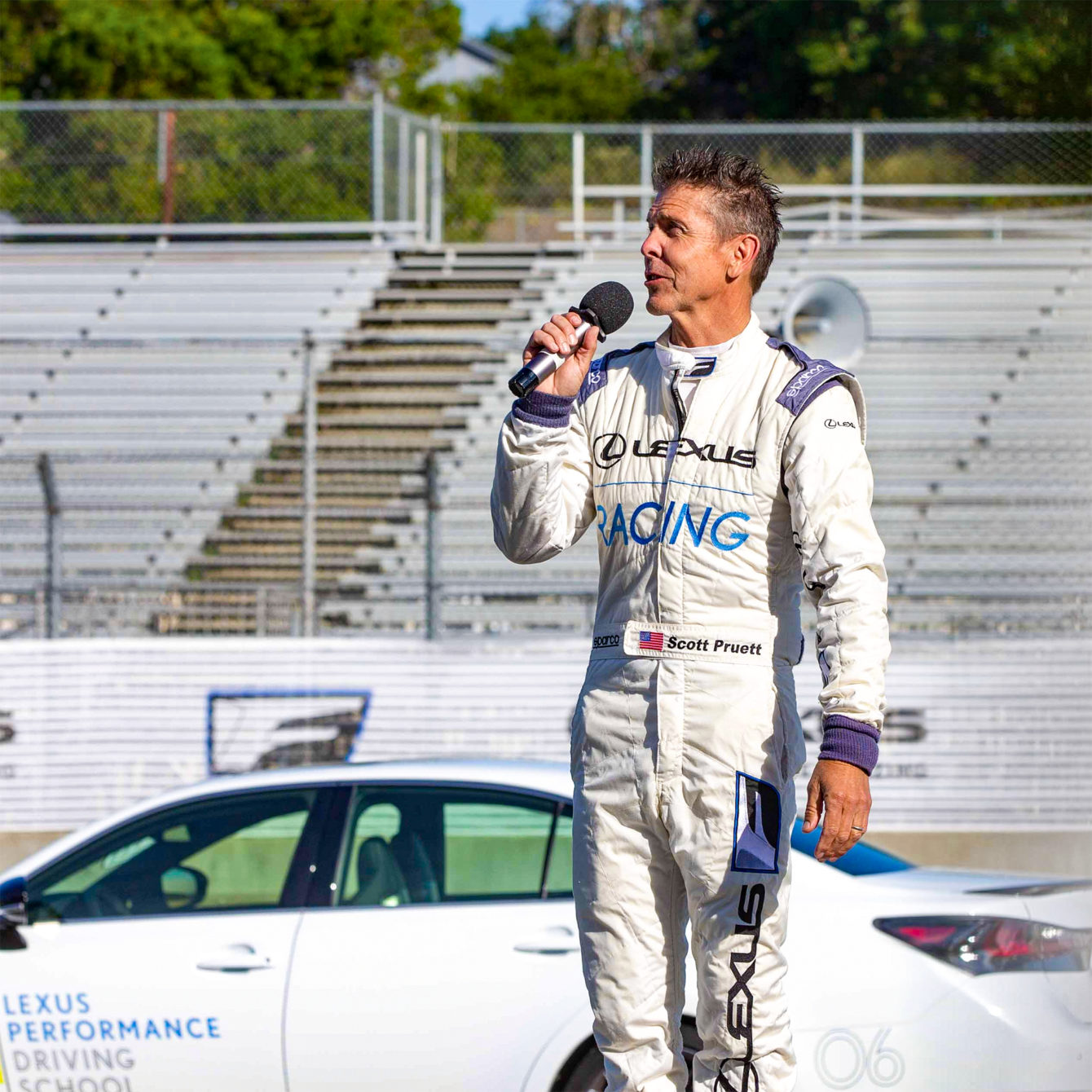
After lunch, Team Carbon’s vehicle control abilities were tested while drifting on a wet asphalt skid pad—full acceleration in a tight circle followed by hard braking and counter steering, while maintaining awareness of the vehicle’s location. Surprisingly, my experience navigating iced roads in the snowbelt as a teenager kicked in, and it was exhilarating—so much so that my hands trembled from excitement when I exited the car with the smell of burnt rubber in the air.
Another timed autocross session followed drifting with markedly improved times by everyone. We then returned to the racetrack for our final lead-follow session (also notably improved). The day culminated with a passenger seat ride with pro drivers performing hot laps around the race track for participants to experience the full potential of the vehicles.
According to Scott, who was at ground zero with the start of the Lexus Performance Driving School, “I have lived on adrenaline my entire life and continue to by being a part of the school and testing and developing new cars with Lexus. We want moments in our lives that excite us. This is one of those!”
Heading to a Monterey Racetrack to Test Out High Performance Vehicles
During what many car enthusiasts call the glory days of Formula One motor racing, I worked alongside the sport’s British mastermind, Bernie Ecclestone, for numerous years while teams globetrotted across time zones and oceans vying for coveted championship points. The late legendary Brazilian race car driver Ayrton Senna and other notable competitors of that era […]
Billie Eilish Collaborator FINNEAS Debuts New Track
“Angel” is the third single by the multi-instrumentalist, and more are on the way.
Southern California Company Puts a Spirited Spin on an Italian Tradition
The story of Amaro Angeleno is anything but bitter.
Get the Latest Stories
